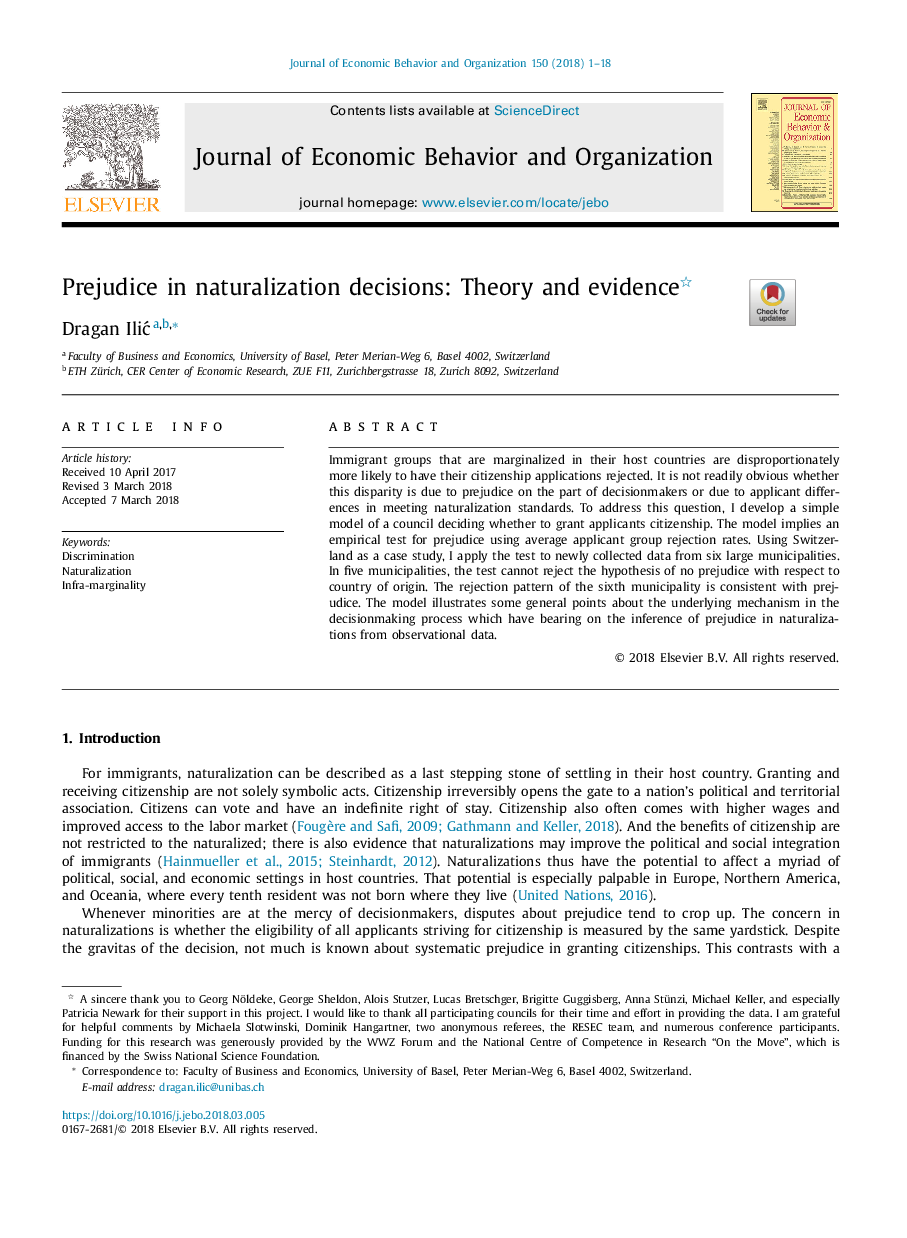| Article ID | Journal | Published Year | Pages | File Type |
|---|---|---|---|---|
| 7242497 | Journal of Economic Behavior & Organization | 2018 | 18 Pages |
Abstract
Immigrant groups that are marginalized in their host countries are disproportionately more likely to have their citizenship applications rejected. It is not readily obvious whether this disparity is due to prejudice on the part of decisionmakers or due to applicant differences in meeting naturalization standards. To address this question, I develop a simple model of a council deciding whether to grant applicants citizenship. The model implies an empirical test for prejudice using average applicant group rejection rates. Using Switzerland as a case study, I apply the test to newly collected data from six large municipalities. In five municipalities, the test cannot reject the hypothesis of no prejudice with respect to country of origin. The rejection pattern of the sixth municipality is consistent with prejudice. The model illustrates some general points about the underlying mechanism in the decisionmaking process which have bearing on the inference of prejudice in naturalizations from observational data.
Keywords
Related Topics
Social Sciences and Humanities
Economics, Econometrics and Finance
Economics and Econometrics
Authors
Dragan IliÄ,
